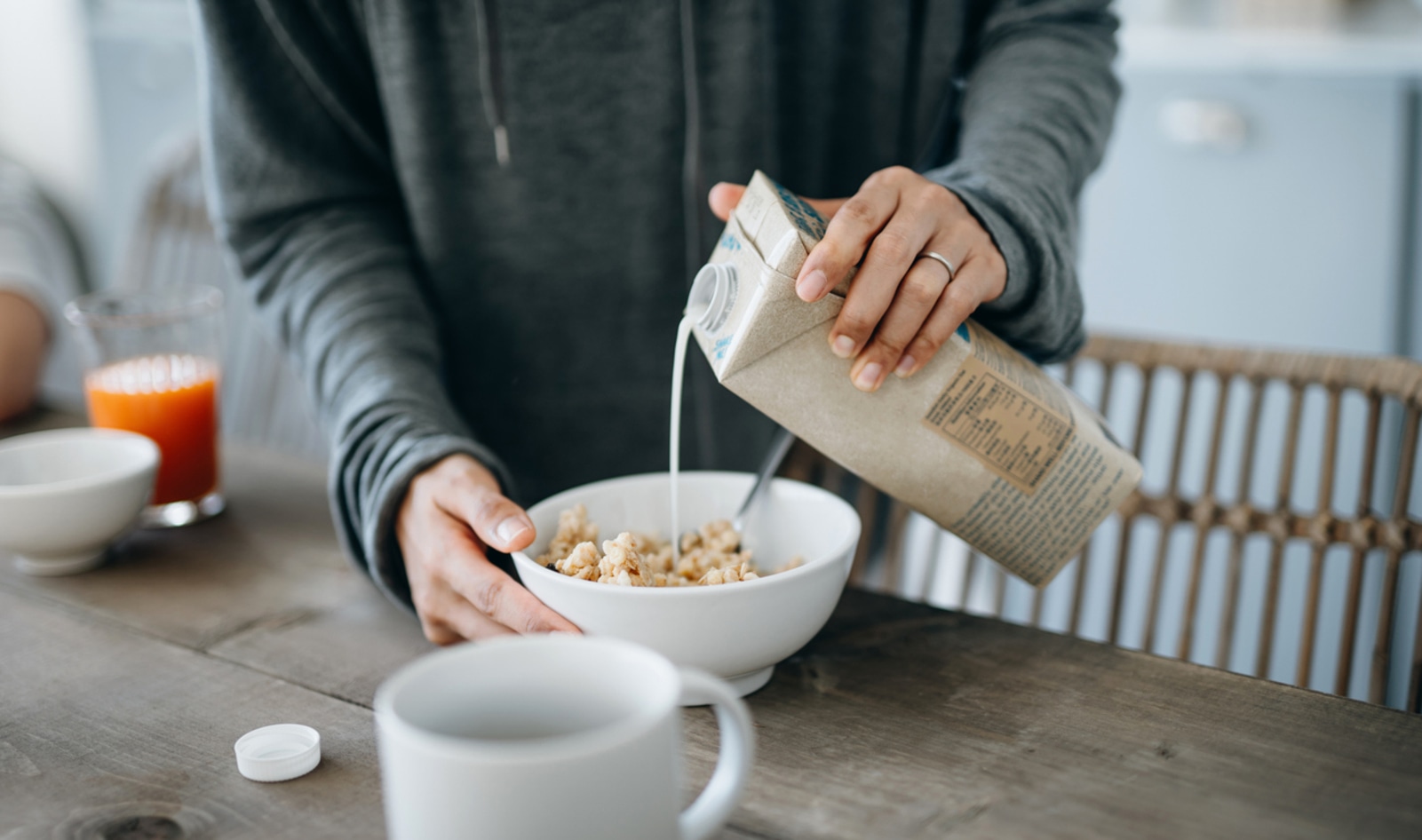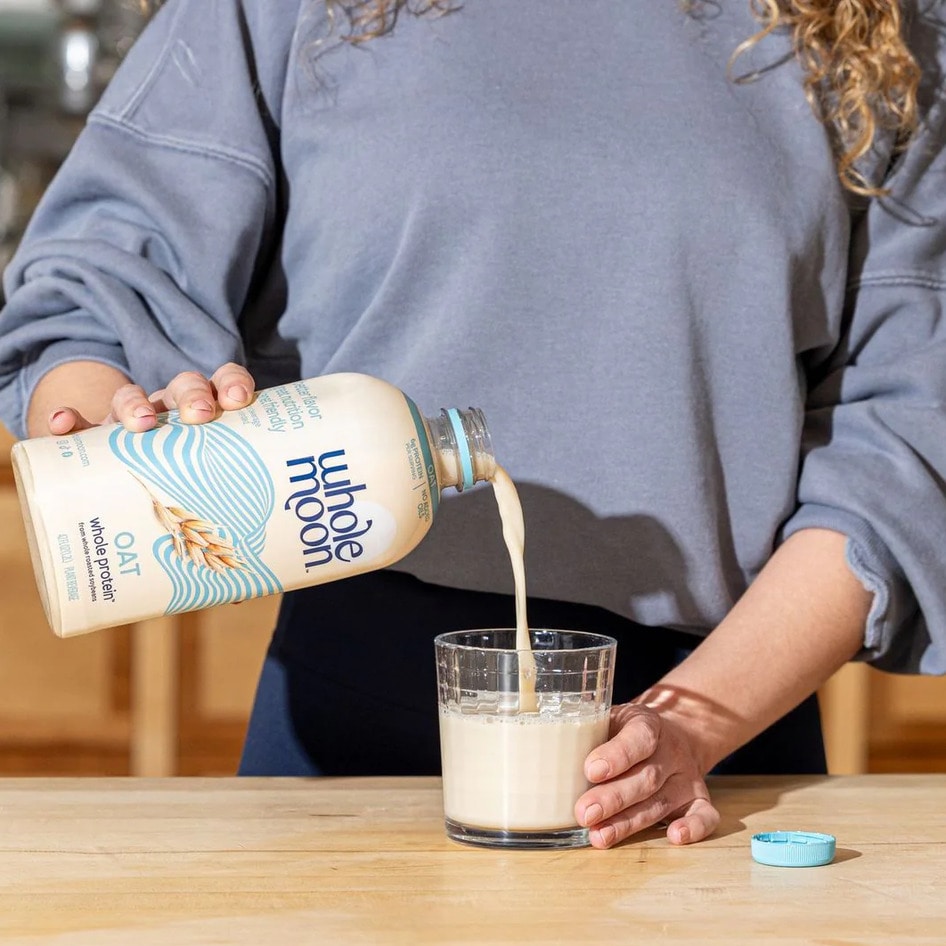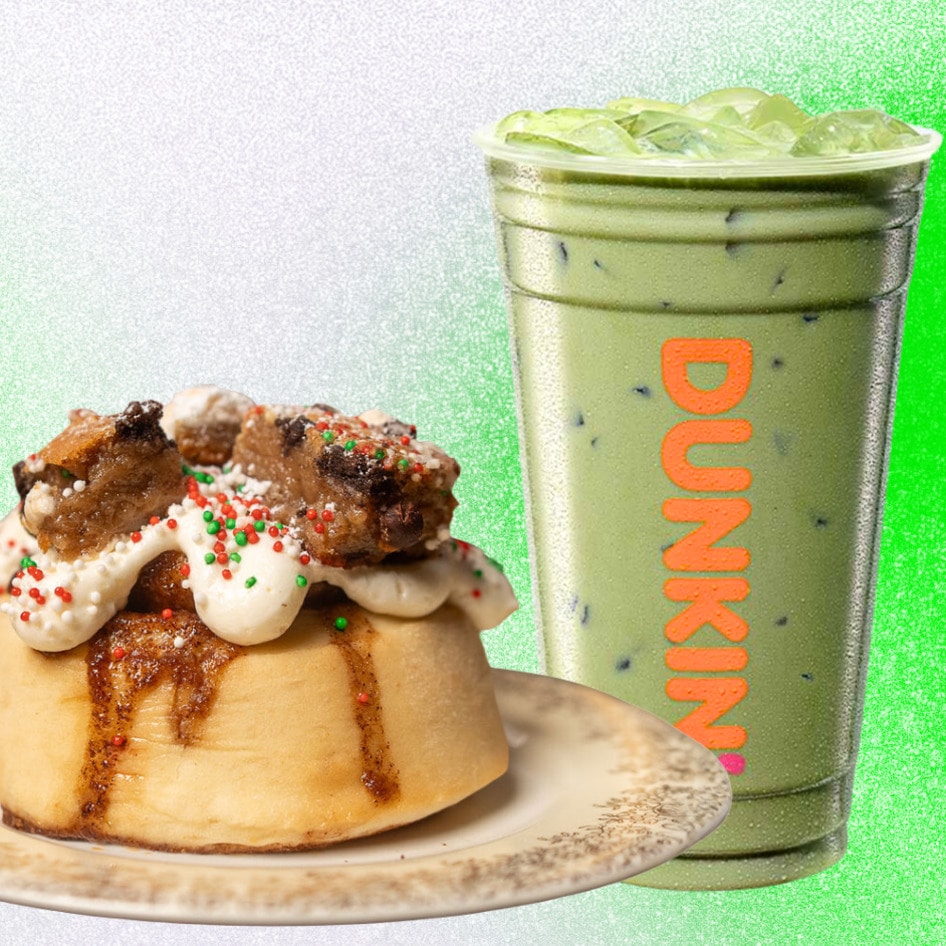Dairy-free milk continues to expand its reach across the US with the market valued at more than $4.25 billion in 2024 and expected to reach more than $7 billion by 2029. While almond milk remains the supermarket category leader, oat milk is seeing increased demand. Leading that demand is the Swedish label Oatly, best known for its quirky packaging and snarky marketing efforts even as wellness influencers criticize oat milk.
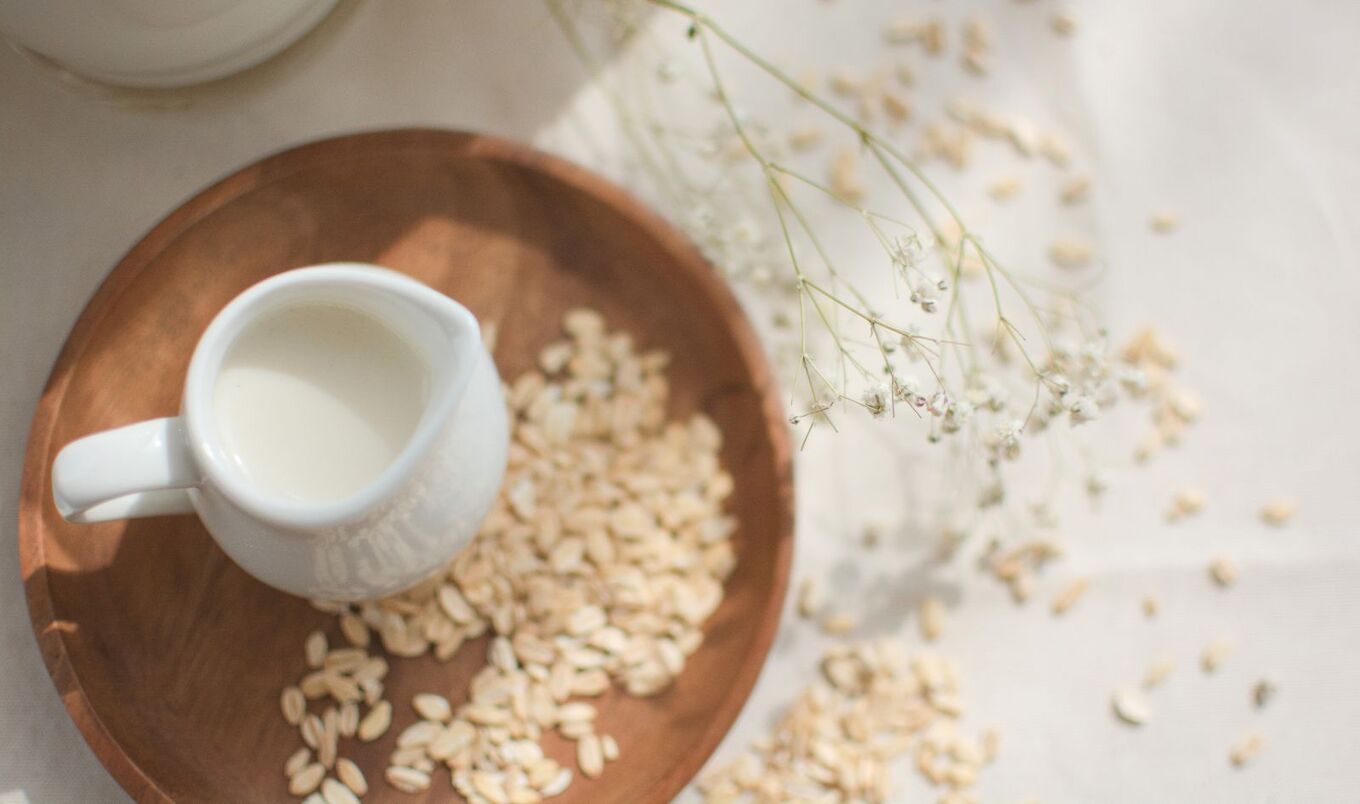 Canva
Canva
Nearly as quickly as oat milk rose to become a barista favorite for its creaminess that mirrors dairy, TikTok wellness platforms blasted it for its glycemic content; they say oat milk contains too much sugar, starch, and controversial processed seed oils.
But the hype may be unwarranted. “In a healthy person who’s consuming low quantities of oat milk and following a largely whole food, minimally processed, lower carb diet, I would say it’s not a major issue,” Melissa Smith, a nutritionist at The Health Gardener, told Newsweek. But, she cautions, “If someone is using high quantities of oat milk as well as consuming a lot of highly and ultra-processed foods, particularly carbohydrate-based foods, then it could contribute to metabolic dysregulation and the development of health issues.”
Oat milk demand
Still, demand for oat milk is on the rise. According to retail data company SPINS, demand for oat milk in the US jumped 28 percent over two years, pushing sales north of $695 million in just the last year.
Oatly continues to be the market’s key driver. The company reported a 10.9 percent increase in revenue for the third quarter of 2024, totaling $208 million. This growth was driven by strong volume increases and improved supply chain efficiencies.
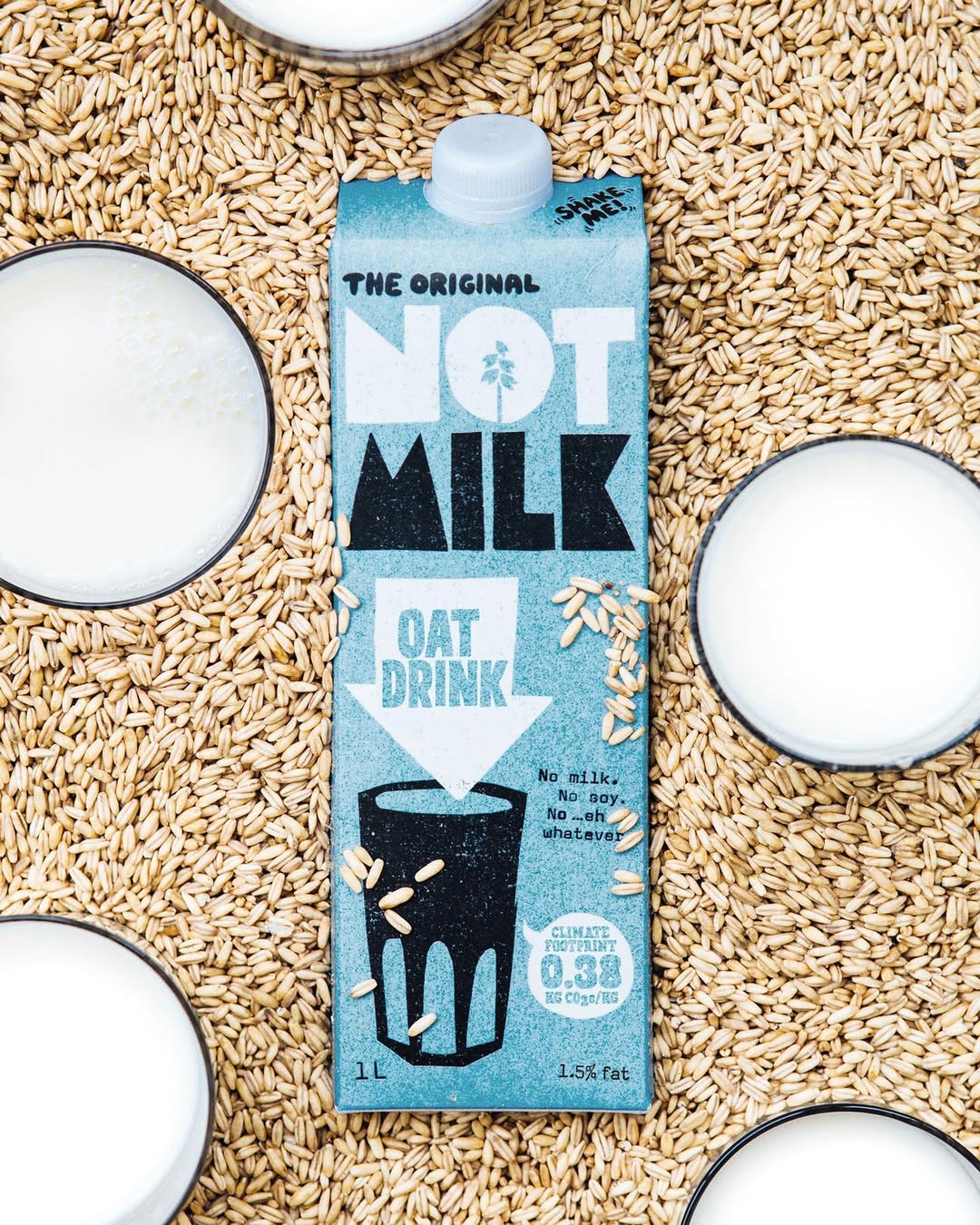 Oatly
Oatly
Jean-Christophe Flatin, CEO of Oatly, commented on the company’s performance, stating, “Our team’s continued focus on solid execution has enabled us to drive profitable growth in each of our three operating segments.”
Despite these achievements, Oatly has adjusted its full-year revenue growth outlook. The company now anticipates figures near or slightly below the low end of its previously projected range. Challenges such as slower growth in the plant-based milk category (in the UK) and heightened competition in Southeast Asia have tempered expectations. Oatly announced the closure of its Singapore facility earlier in December as a result of the Asian slow down.
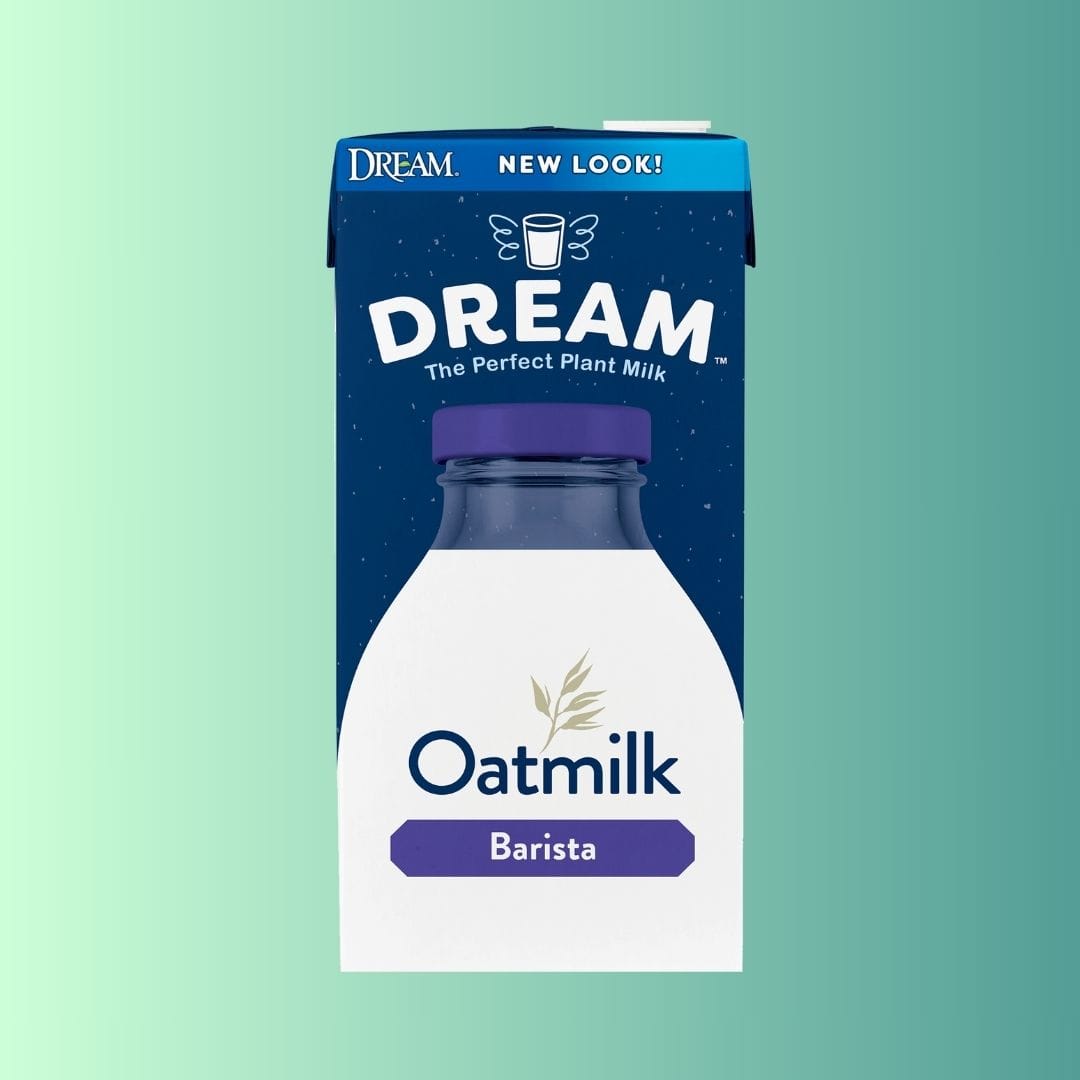
Competition is also ticking up. Starting in January, SunOpta’s Dream Oatmilk Barista oat milk will become available in more than 6,700 locations across North America. The expansion is part of a strategic partnership with an unnamed major coffee chain, which investment firm DA Davidson speculates to be Starbucks. The barista-focused oat milk, designed specifically for coffee applications, is not currently available in retail stores.
This significant increase in distribution will leverage SunOpta’s existing infrastructure, including its oat extraction facility in Modesto, CA, and its production plant in Midlothian, TX. These facilities will play a crucial role in meeting the high production volumes required by this new partnership.
 Chevanon | Pexels
Chevanon | Pexels
BECOME A VEGNEWS VIP: Get exclusive product deals, freebies, and perks galore!
“We’re incredibly proud to supply our customers with plant-based beverage options, including our Dream Oatmilk Barista,” Brian Kocher, CEO of SunOpta, said in a statement. “We understand that every single impression for a barista and a coffee lover is precious. We offer delicious plant-based alternatives while striving to create a perfect experience.”
SunOpta’s focus on sustainability further enhances its appeal. The company’s nationwide manufacturing network and recyclable packaging formats aim to reduce food miles, cut costs, and minimize waste. “We are committed to a more sustainable future by working to reduce water, packaging, and carbon emissions,” Kocher added.
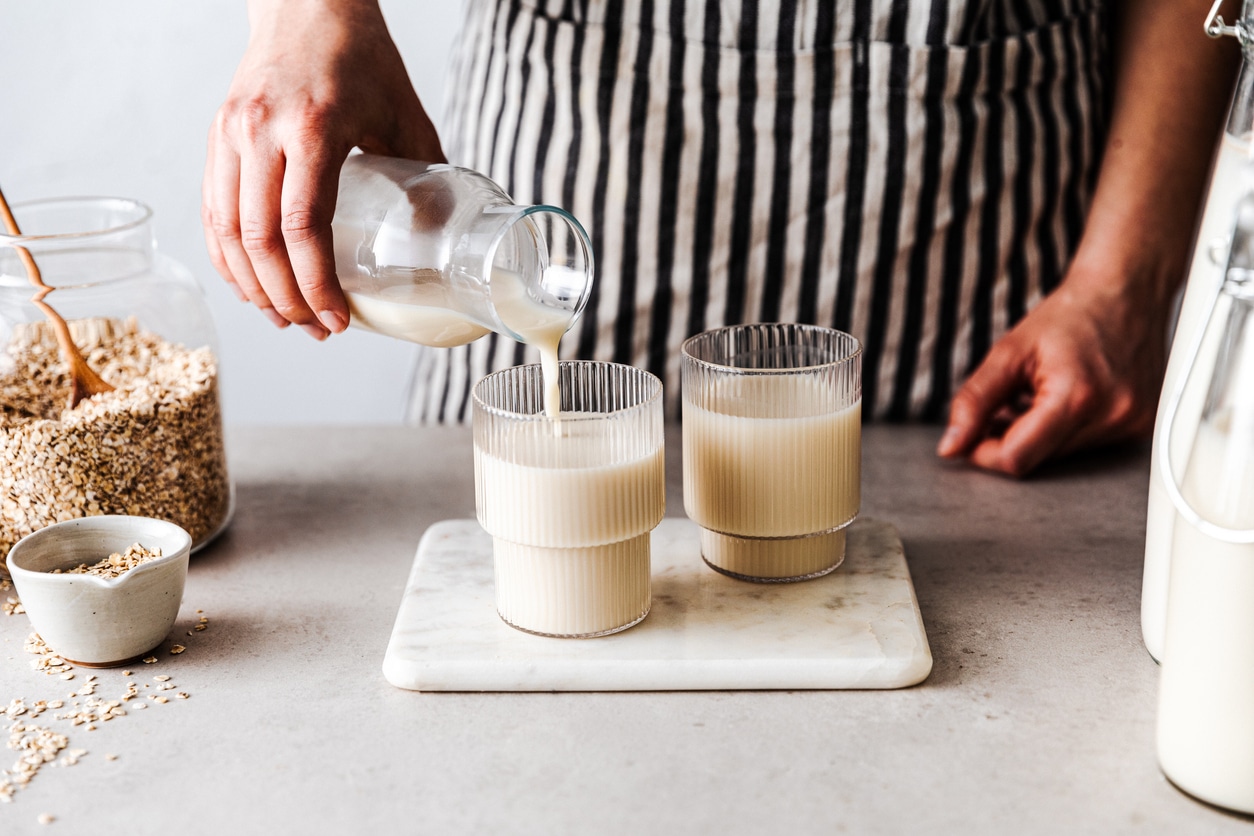 Getty
Getty
SunOpta’s expansion aligns with broader growth trends in the plant-based milk market. Analysts predict that the market could double in size by 2033, with oat milk emerging as the second most popular plant-based beverage. This strategic move is also expected to strengthen SunOpta’s financial performance. In its second quarter 2024 financial report, the company reported a 21-percent increase in revenue from continuing operations, reaching $171 million. This growth was primarily driven by a 26.9 percent increase in production volume. The additional distribution of Dream Oatmilk Barista is anticipated to further boost revenue for the 2025 fiscal year.
Milkadamia’s Flat Pack innovation
While established brands like SunOpta and Oatly expand their reach, newer innovations are also reshaping the oat milk landscape. Milkadamia, known for its macadamia nut milk, has introduced a groundbreaking product: Flat Pack Oat Milk sheets. Debuted at the 2024 Newtopia Now trade show, this novel format allows consumers to make oat milk from scratch using pre-portioned sheets.
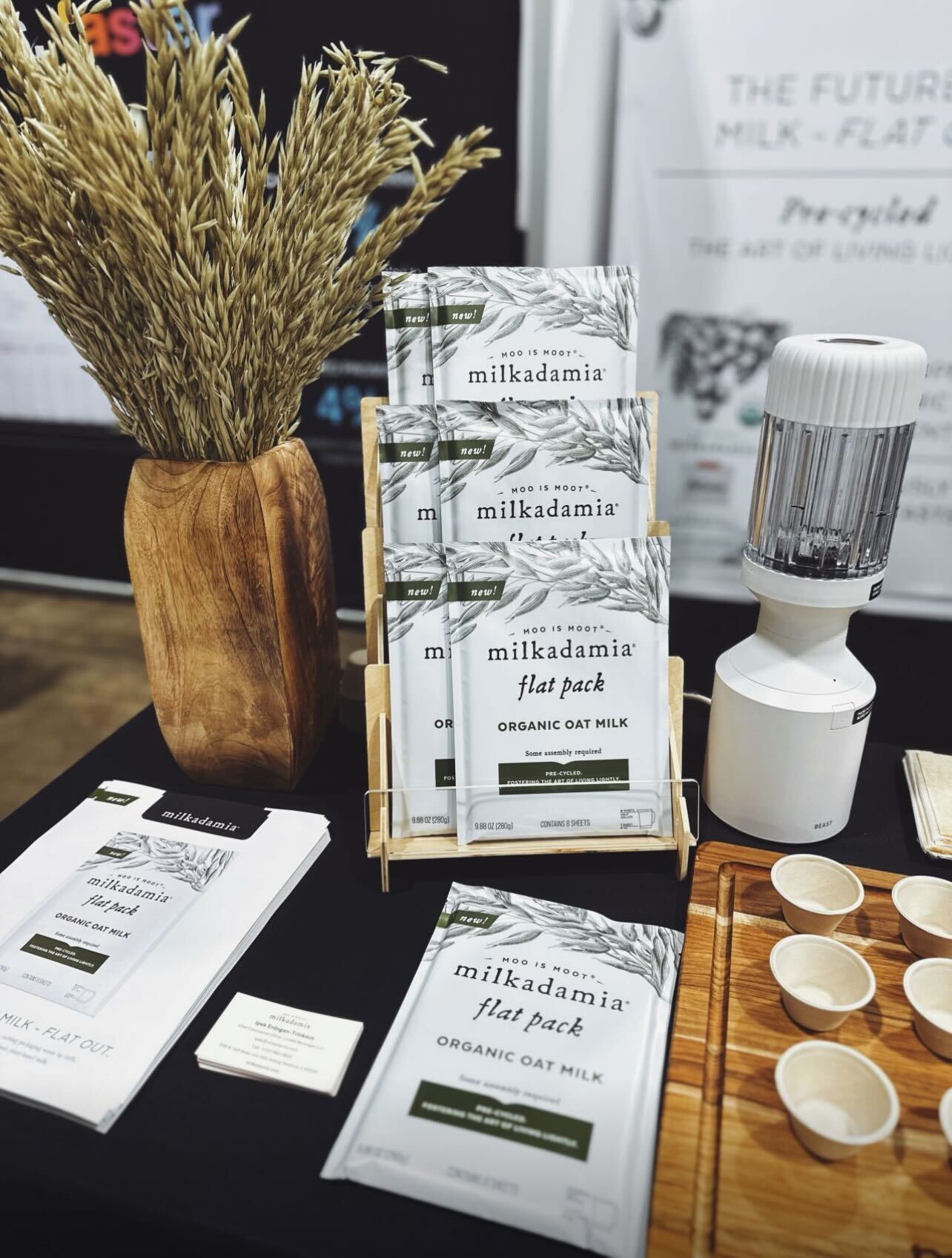 Milkadamia
Milkadamia
The eco-friendly Flat Pack reduces packaging waste by 94 percent and decreases packaging weight by 85 percent compared to traditional cartons. Jim Richards, CEO of Milkadamia, explained the motivation behind this innovation. “Pre-cycling puts the onus on businesses to make proactive changes. The Flat Pack embodies pre-cycling by significantly reducing ecological costs—minimizing transportation bulk and packaging,” he said in a statement.
Unlike traditional oat milk, which comes ready-to-drink, the Flat Pack requires some assembly. Consumers mix the sheets with water to create a beverage that offers the same taste and texture as conventional oat milk. This shelf-stable product also uses less energy throughout its production and distribution processes, aligning with Milkadamia’s mission to promote sustainability.
“A key factor driving the adoption of plant-based foods is eco-consciousness,” Richards said. The development of the Flat Pack is rooted in both the projected growth of the alt-milk category and “a commitment to addressing consumer concerns about packaging waste.”
For more plant-based stories like this, read:
JUMP TO ... Latest News | Recipes | Guides | Health | Subscribe

